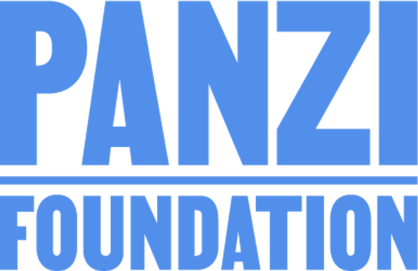
Panzi Foundation
Panzi Hospital & Foundation, located in the Democratic Republic of the Congo, were created by Dr. Denis Mukwege, 2018 Nobel Peace Prize Laureate, to provide survivors of conflict-related sexual violence with medical and psychological care in addition to legal and socioeconomic assistance.
Panzi Hospital & Foundation have treated over 70,000 survivors of sexual violence. As the violence in eastern DRC is still ongoing, so too is the work of Dr. Mukwege and his Panzi Hospital & Foundation.
Yvette's experience of being raped as a child in the Democratic Republic of Congo changed her life in unimaginable ways. The trauma of the assault shattered her once-close family, who distanced themselves from her and discontinued her education. Yvette was left feeling isolated, especially after discovering that she was pregnant. In the DRC, rape is heavily stigmatized, and survivors are often shunned by their communities.
Despite the pain and isolation, Yvette found hope and healing at Panzi Hospital. When she arrived, she received medical treatment and attended therapy over the course of a month. The hospital's holistic approach to healing included dance therapy, karate, and sports like soccer, which helped to "renew her mental strength." These therapy sessions and activities had a profound impact on Yvette's mental and emotional well-being. She no longer had suicidal thoughts and felt that her life was starting to get better.
After overcoming her psychological trauma, Yvette yearned for independence and wanted to continue her studies, which had been interrupted by her assault. As part of Panzi’s socio-economic pillar, she attended a job skills training program focused on lapidary, where she discovered her passion for jewelry-making. She was intelligent and concentrated during the training program, and she found that her country had many natural resources that could be exploited. She became determined to organize more training for women to become specialists in jewelry-making.
While the training can be difficult and overwhelming because it is so new, the trainees are incredibly motivated to complete it and learn as much as possible. Yvette is proud of herself and the other women in the program, who are creating something that hasn't been in the Congo before.
Yvette now devotes her life to helping other survivors to realize their dreams. She credits Dr. Mukwege and Panzi for giving them the support they needed to rebuild their lives. Despite the trauma of her past, Yvette has found a new purpose in life and is making a difference in her community.
Financials
Programs
One Stop Centers
One Stop Centers (OSC) provide survivors of sexual violence with all four pillars of holistic healing in one place, addressing the challenges of accessing comprehensive care. OSCs are integrated into existing health care structures to avoid isolating survivors and reduce the risk of stigmatization. In rural areas, OSCs provide survivors with comprehensive, high-quality care without needing to leave their family or travel to multiple health centers. Currently, there are four Panzi OSCs and dozens of Panzi-Partnered OSCs in the DRC, with plans to expand across the country and globally through partner organizations.
Maison Dorcas
Maison Dorcas is a transit and training center that welcomes 50 to 100 survivors of sexual violence and their young children to stay at the facility for 6-month-long sessions. The survivors select a livelihood skill to be trained in during their stay. Training courses include: woodworking, sewing, jewelry making, juice production, leatherwork and more.
In addition to their terrible physical injuries, these rape survivors exhibit symptoms of depression and PTSD. A psychologist is on staff to treat these conditions during their stay. Finally, these women and their children also experience intense stigmatization. Approximately 60% of these women are unable to return home after their abuse.
